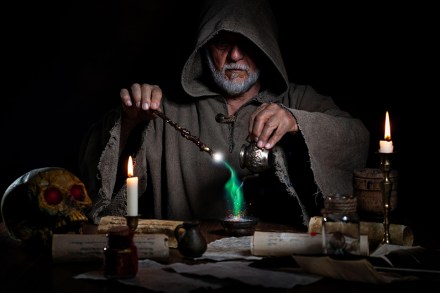Why we love to be baffled
So much of life is a search for answers. How to get ahead, how to earn more money, how to be happy. But deep down, is there a part of us that likes not knowing an answer? Do we sometimes want to be baffled? It’s a question that’s come to fascinate me as I’ve embarked on a new career leading corporate team-building sessions based around magic. I do the tricks (close-up stuff – cards, coins and the like), then the team has to work out how I’m doing them. People who don’t want to know how a magic trick is done are saying: ‘I want to be three again’ Of





